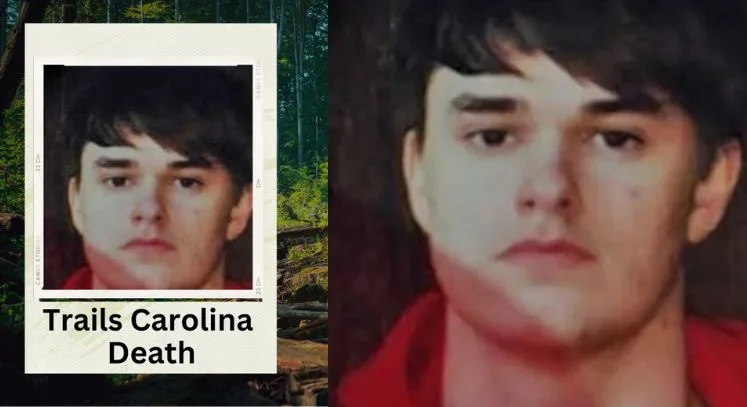Trails Carolina Death for struggling teens, wilderness therapy remains an impactful intervention when practiced responsibly under licensed supervision. However, without diligent oversight and participant safeguards, such programs risk substantially more harm than good, as Andrew’s devastating death underscored.
The Tragic Death That Sparked Controversy
16-year-old Andrew Sholl died in Aug 2021 while hiking as part of the Trails Carolina program. According to reports, he collapsed during a 19-mile hike in 90-degree temperatures. He died due to heat stroke and dehydration.
Some of the key areas of concern highlighted by Andrew’s death include:
- Inadequate staff training in dealing with heat-related illnesses
- Failure to monitor participants for signs of heat exhaustion/stroke
- Lack of access to water during strenuous hikes
- Extended exposure to extreme heat during physically demanding treks
- Changes Instituted Since the Tragedy
Following Andrew’s death, Trails Carolina says it has implemented changes to improve safety, including:
Improved signage and trail marking
- Adding more visible mile markers and directional signs along hike routes
- Painting highlighting points on trees/trail to make routes easier to follow
Increased maintenance and clearing
- Removing dangerous branches overhanging trails
- Widening paths and clearing debris to improve visibility and reduce tripping hazards
Enhanced safety measures
- Additional staff training for dealing with medical and heat-related emergencies
- Greater diligence in monitoring participants for signs of heat exhaustion
- Ensuring adequate hydration and rest periods during hikes
However, critics say more systemic changes may still be needed regarding how activities are structured, managed and risk assessed.
Allegations of Abuse and Negligence
While Andrew’s death brought intense scrutiny, allegations of improper practices at Trails Carolina existed well before. Former participants have come forward reporting incidents of abuse from staff.
Common allegations include:
- Staff using excessive force to discipline teens
- Emotional manipulation and humiliation tactics
- Unsafe wilderness conditions without proper student training/supervision
Some said these practices verge on abuse, neglect and exploitation rather than therapy. Andrew’s death further fueled demands for formal investigations and oversight.
Legal Actions and Investigations Into Trails Carolina
Both criminal and civil legal proceedings are examining Trails Carolina regarding allegations spanning negligence, child abuse, wrongful death lawsuits and consumer protection violations.
Criminal Investigations
North Carolina authorities have launched a criminal probe related to possible child abuse or neglect charges. Such charges could lead to hefty fines and jail time if substantiated.
Civil Lawsuits
Andrew Sholl’s parents filed lawsuits seeking financial damages for wrongful death and negligent infliction of emotional distress. Other families of former program participants also filed civil lawsuits for trauma related to alleged abuse.
If successful, these civil suits could mean major financial liability or even shut down Trails Carolina.
Consumer Protection Violations
Separate from injury/death-related lawsuits, North Carolina’s Department of Justice is examining whether Trails Carolina violated state consumer protection laws when promoting its services and programs. Fines and injunctions prohibiting certain business practices are possible outcomes if violations are affirmed through the investigation.
How to Choose a Safe Wilderness Therapy Program
For parents considering wilderness therapy, scrutinizing the following areas can help assess program safety and suitability:
Accreditation and Licensing
- Accredited through nationally-recognized agencies (e.g. CARF)
- Licensed to operate as children/youth services provider
Staff Qualifications
- Rigorous hiring standards and background checks
- Licensed mental health professionals supervising operations
- Wilderness first aid/CPR training
Medical Care
Access to RN or nurse practitioner
Detailed medical history obtained beforehand
Protocols for responding to emergencies
Safety Procedures
Established risk management and adequate supervision
Gradual exposure to physically/emotionally challenging conditions
Clear safety rules and enforcement
Family Involvement
Updates to caregivers during the program
Parent/guardian ability to withdraw child if concerned
Evaluating these five areas can help identify programs focused on rehabilitation through safe, ethical means. Rushing decisions without thorough vetting threatens adolescent wellbeing.
Conclusion
The tragic loss of Andrew Sholl prompted long-overdue investigations into alleged systemic negligence and abuse at Trails Carolina. While enhanced safety measures appear to be in place, pending legal actions and oversight inquiries may reveal further changes needed to ensure participants’ welfare, or even require the program’s shutdown if serious violations come to light.
FAQs of trails carolina death
Q: What caused the death of Andrew Sholl at Trails Carolina?
A: Andrew Sholl died due to heat stroke and dehydration while hiking 19 miles in 90-degree weather as part of the Trails Carolina wilderness therapy program.
Q: What reforms were put in place at Trails Carolina following the tragedy?
A: Following Andrew’s death, Trails Carolina instituted changes like enhanced trail marking/signage, increased maintenance, more staff safety training, and improved participant hydration/monitoring during hikes.
Q: What legal action is Trails Carolina facing currently?
A: Trails Carolina is facing criminal probes regarding child abuse/neglect and civil lawsuits over wrongful death, negligence, and consumer protection violations.
Q: What should parents evaluate when considering wilderness therapy programs?
A: Key areas parents should scrutinize are program accreditation/licensing, staff qualifications, medical care access, safety procedures, and level of family involvement.
Q: Could Trails Carolina be shut down due to lawsuits?
A: Yes, pending civil lawsuits related to participant deaths and alleged abuse could potentially force Trails Carolina to close if the program is found seriously negligent.






